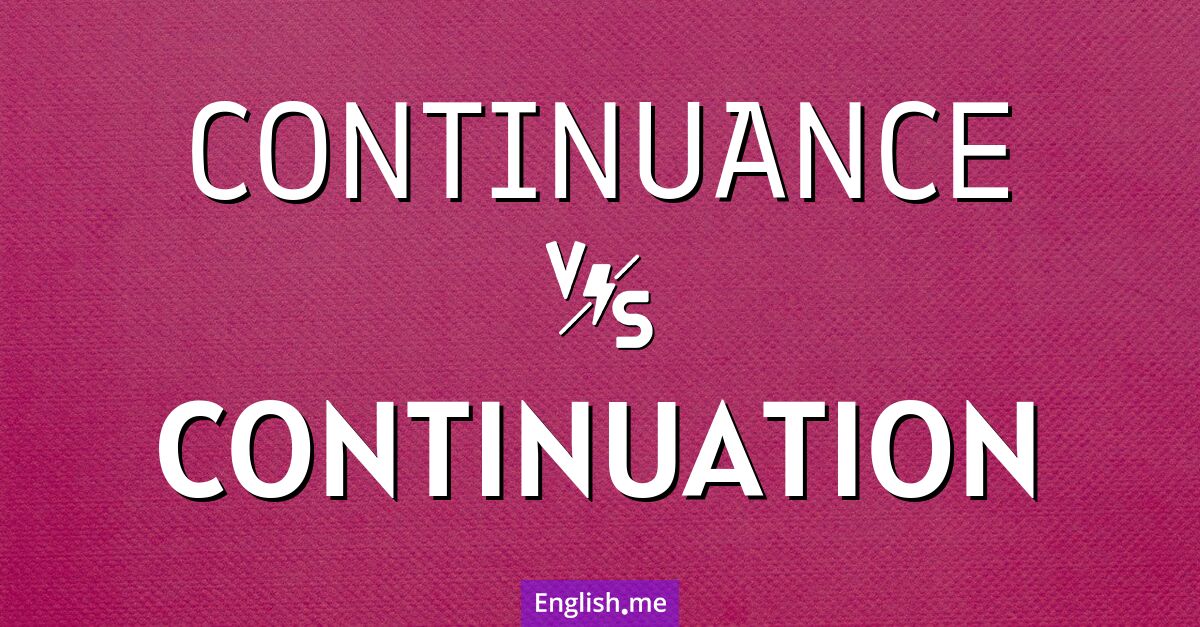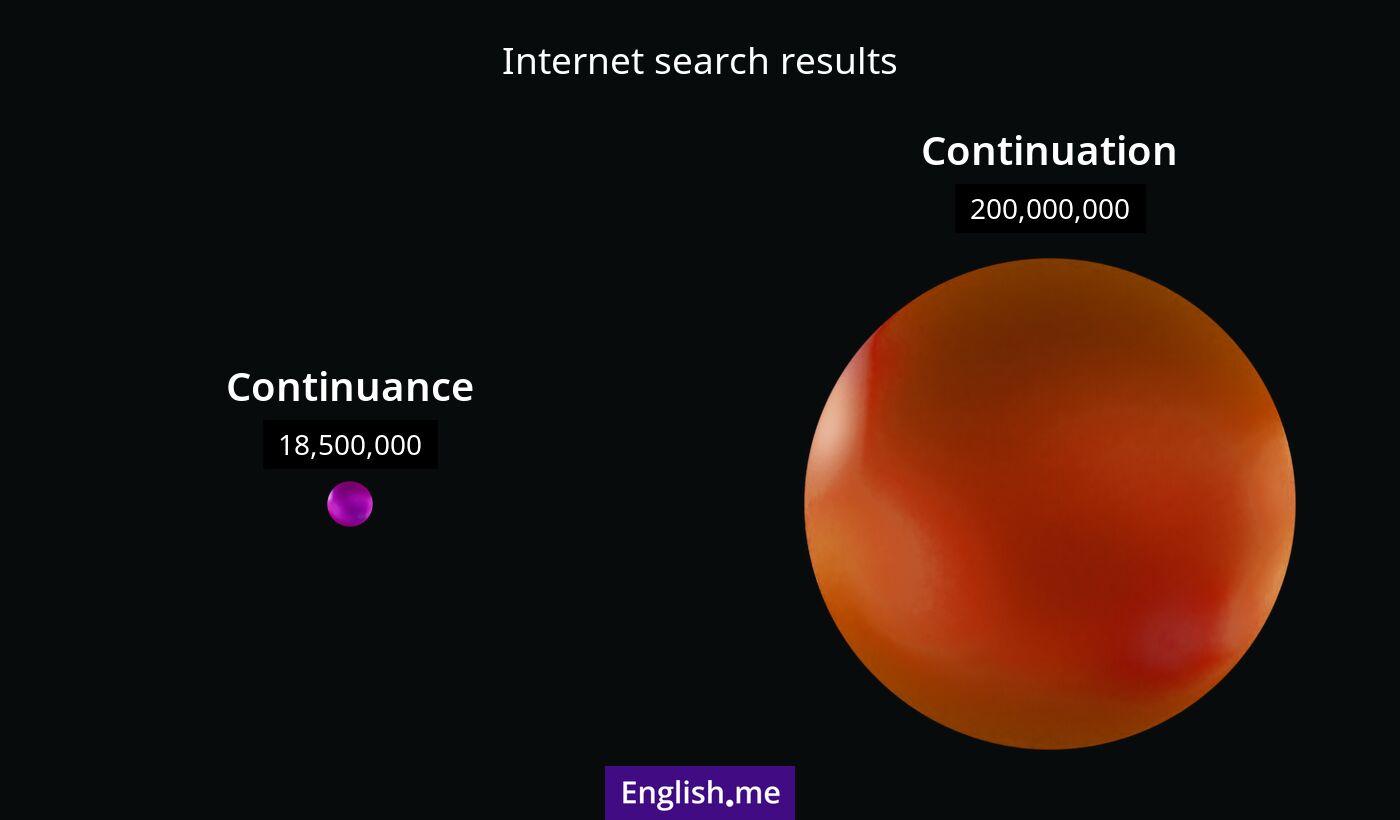"Continuance" vs. "continuation": a never-ending word match
Reviewed and edited by  Lloyd Cooper 28/11/2024, 23:55
Lloyd Cooper 28/11/2024, 23:55
English.me team member

 What is similar?
What is similar?
Both "continuance" and "continuation" derive from the verb "continue" and refer to the act or state of something continuing over time.
 What is different?
What is different?
While both words relate to the concept of continuing, "continuation" often refers to the process of something being continued or resumed after an interruption, such as a story, activity, or event. "Continuance", on the other hand, can refer to the duration during which something exists or lasts, and is also commonly used in legal contexts to mean a postponement or adjournment of a court proceeding to a later date.
 Which one is more common?
Which one is more common?

 Examples of usage
Examples of usage
Continuance- The lawyer requested a continuance to prepare further evidence.
- The continuance of the peaceful state was largely due to the new policies.
- The project's continuance depends on the approval of additional funding.
- The continuation of the story picks up where the last book left off.
- The meeting's continuation will take place after lunch.
- They were pleased with the continuation of the program despite budget cuts.

 English
English español
español française
française italiano
italiano deutsche
deutsche 日本語
日本語 polski
polski česky
česky svenska
svenska Türkçe
Türkçe Nederlands
Nederlands